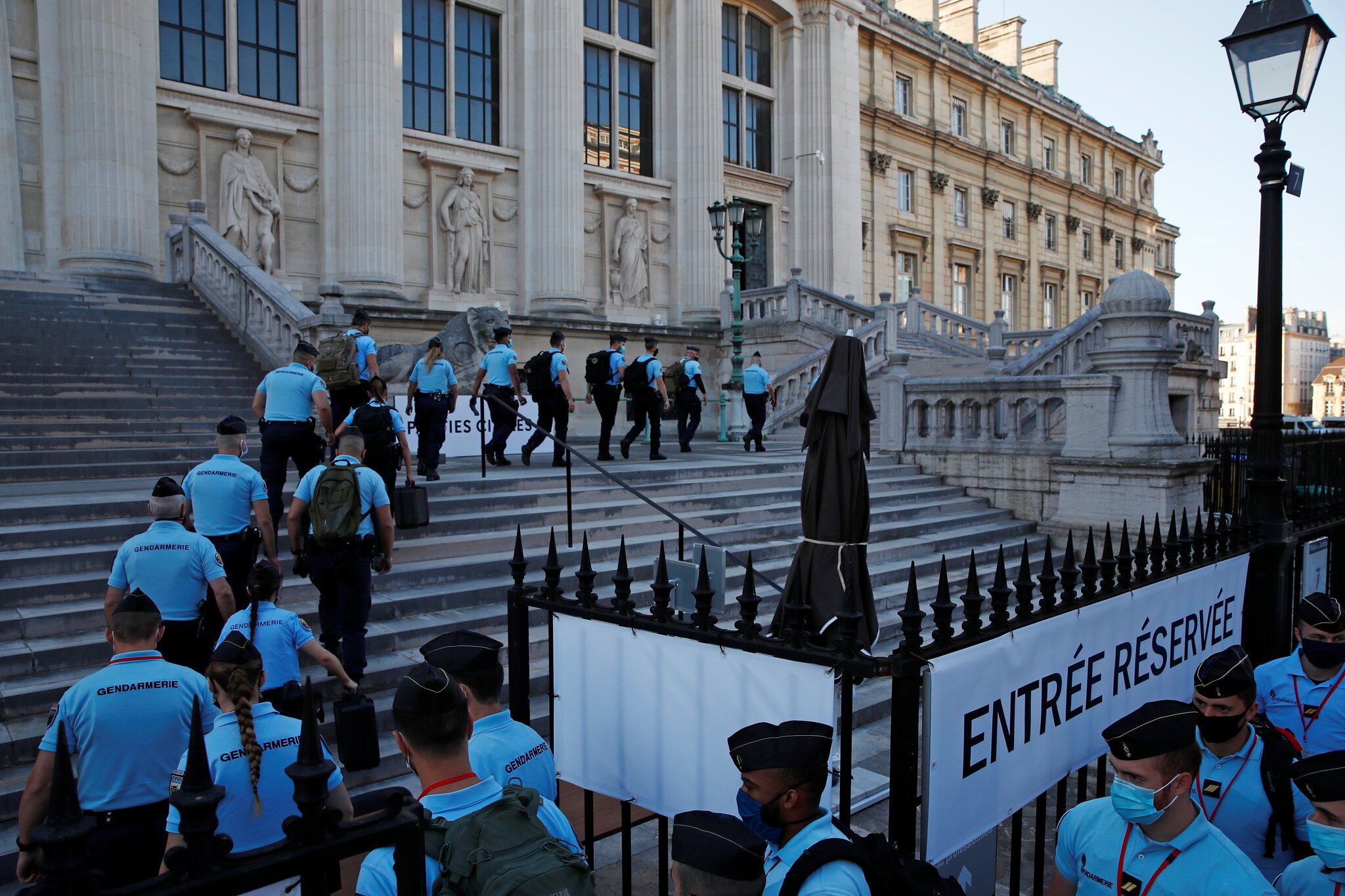After surviving a terrorist assault at the Bataclan music venue in Paris, Marilyn Garnier recalls the events of that evening with vivid clarity.
The Bataclan music venue, a sports stadium, pubs and restaurants across the French capital were all targeted by ten assailants almost six years ago, killing 130 people and injuring hundreds more in coordinated shootings and suicide bombings. The ISIS assaults took place on a particularly beautiful November Friday night in 2015, when outside café tables were packed with people enjoying the weather.
This week marks the beginning of almost 1,800 witnesses and victims of these assaults taking the stand in a trial that is anticipated to take nine months and will include more than 300 attorneys, hundreds upon hundreds of thousands of pages of records, and unparalleled security. There will also be a large number of onlookers in attendance.
A high-security witness box for the lone survivor among the terrorists who carried out the assaults has been constructed specifically for the trial in a special courtroom designed just for it. A jury will hear the case of Salah Abdeslam, a French citizen who resided in Belgium and is now imprisoned in France, together with 13 others accused of assisting in the planning, provision of logistics, and delivery of weapons, on November 13, 2015. He is being held on murder accusations that are connected to a terrorist organisation.
As reported by Le Parisien at the time, François Hollande, the socialist president of France, said that his tenure in power “bears the marks of what occurred on November 13 and more broadly of Islamist terrorism,” whether he liked it or not.
Men in their 20s and 30s who have been charged with a variety of offences, including participation in murder and hostage-taking, as well as forming a terrorist plot, are standing trial. The majority of them will serve terms ranging from 20 years to life in jail.
Prosecutors claim that several of the accused individuals assisted the Nov. 13 attackers by renting hideouts for them to store weapons and explosives, transporting members of the cell across borders, and obtaining cash and forged identification papers. 14 will appear in person at the trial after being apprehended mostly in France and Belgium, while six others who are still sought for arrest will be prosecuted in absentia since they are still on the run.

